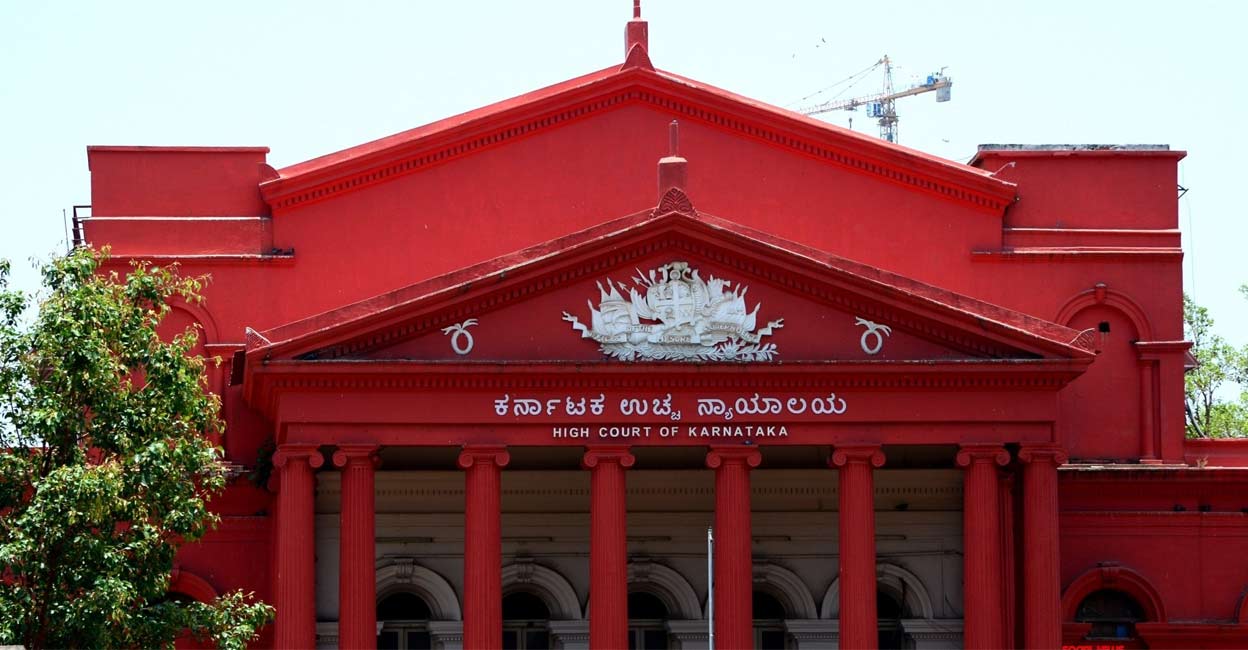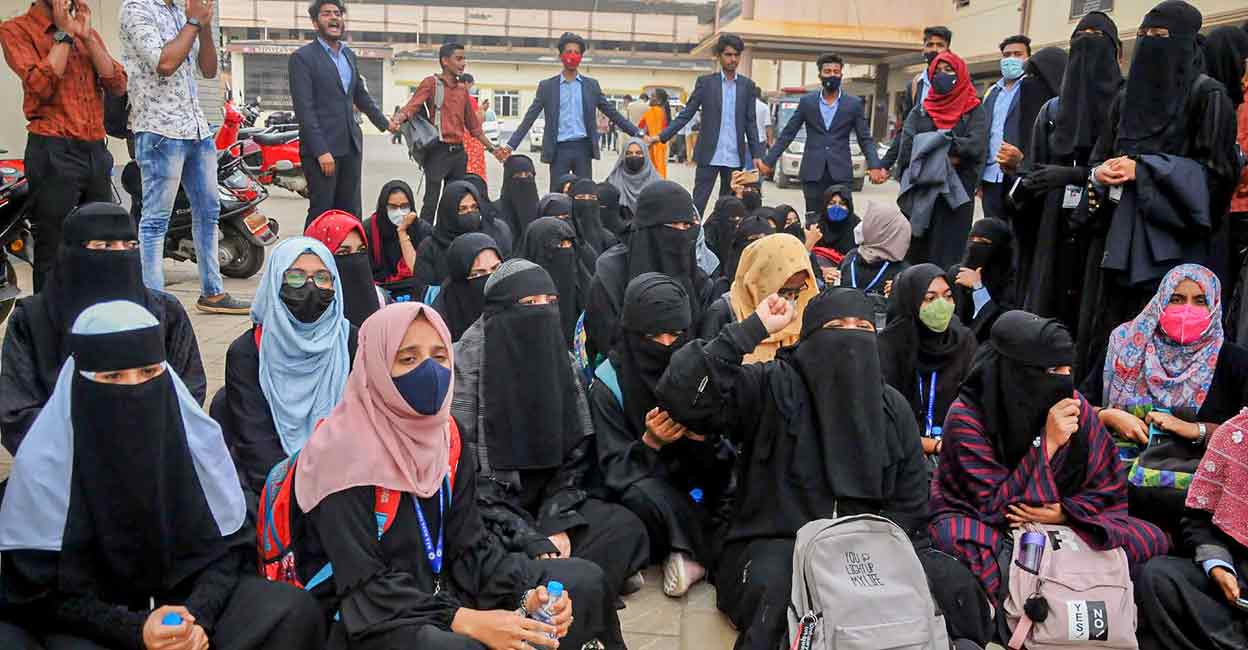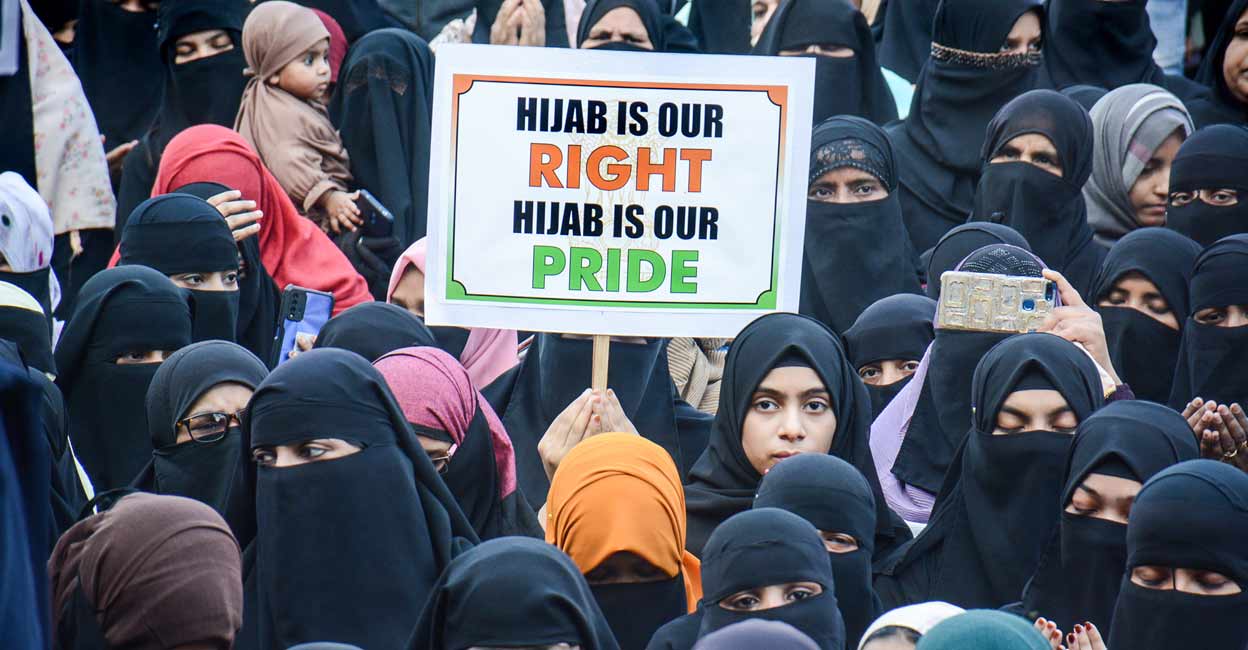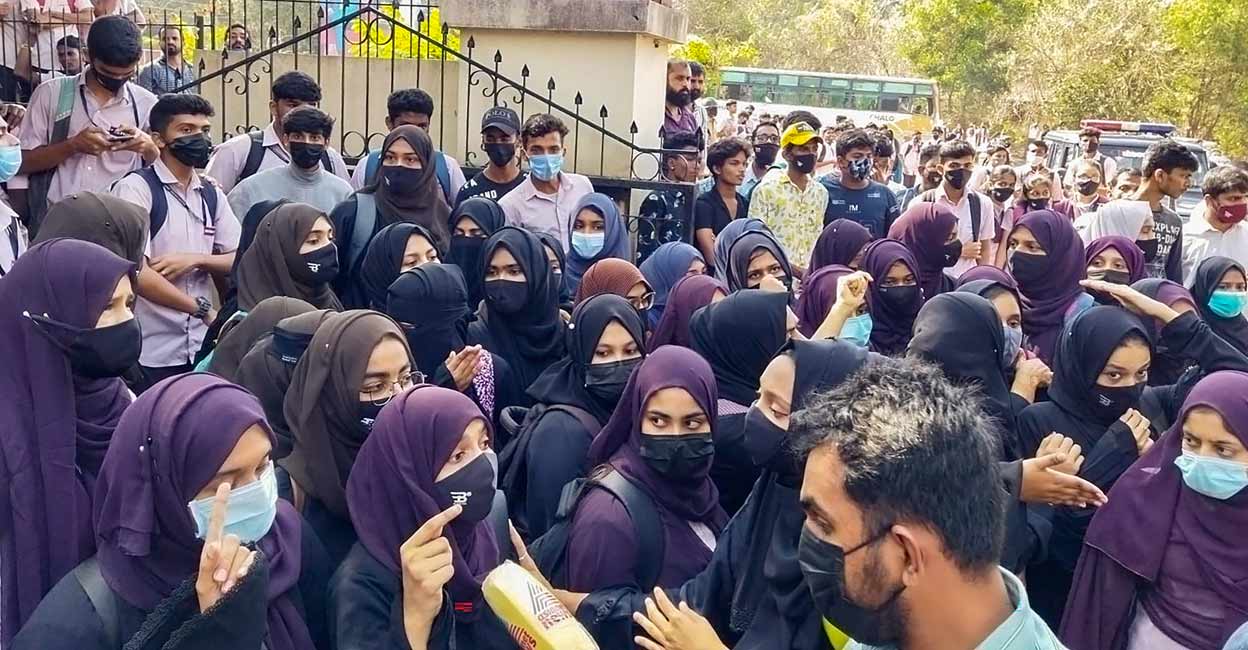Karnataka HC upholds hijab ban; says 'it's not an essential religious practice in Islam'

Mail This Article
Bengaluru: The Karnataka High Court on Tuesday dismissed all writ petitions filed by Muslim girl students seeking permission to wear hijab in colleges and challenging the government order of February 5.
No case is made out for invalidating the government order of February 5, the court said.
"Hijab is not a part of essential religious practices of Islam; requirement of uniform is a reasonable restriction on the fundamental right to freedom of expression under Article 19(1)(a)," Chief Justice Ritu Raj Awasthi who headed the full bench of the High Court said reading out portion of the order.
The other two judges in the panel were Justice Krishna S Dixit and Justice J M Khazi.

"The government has the power to pass the GO; no case is made out for its invalidation," the court observed.
The prescription of school uniform is only a reasonable restriction, constitutionally permissible which the students cannot object to, a three-judge bench of the court further noted.

By the said order, the state government had banned wearing clothes which disturb equality, integrity and public order in schools and colleges.
The court also rejected the plea to initiate a disciplinary inquiry against the college, its principal and a teacher.
"In the above circumstances, all these writ petitions being devoid of merits are liable to be and accordingly are dismissed. In view of the dismissal of the writ petition, all the pending applications fell into insignificance and are accordingly disposed off," the bench said in its order.
The full bench of the Karnataka High Court, which concluded its hearing in the Hijab case, pronounced the verdict on Tuesday.

The demand by a section of girls in a Udupi pre-university college to wear Hijab inside their classrooms erupted into a major row after some Hindu students turned up in saffron shawls with the issue spreading to other parts of the state, even as the government insisted on a uniform norm.
The full bench of the High Court comprising Chief Justice Ritu Raj Awasthi, Justice Krishna S Dixit and Justice J M Khazi was constituted on February 9 on a petition filed by girls from Udupi who prayed that they should be allowed to wear Hijab even inside the classroom along with the school uniform as it was part of their faith.
On January 1, six girl students of a college in Udupi attended a press conference held by the Campus Front of India (CFI) in the coastal town protesting against the college authorities denying them entry into classrooms wearing headscarves.

This was four days after they requested the principal permission to wear hijab in classes which was not allowed. Till then, students used to wear the headscarf to the campus, but entered the classroom after removing it, college principal Rudre Gowda had said.
"The institution did not have any rule on hijab-wearing since no one used to wear it to the classroom in the last 35 years. The students who came with the demand had the backing of outside forces," Gowda had said.
As the issue of Hijab versus saffron scarves spread to several educational institutions in many parts of Karnataka, the state government announced holiday from February 9 to February 15 in all the pre-university colleges and from February 9 to February 16 in degree and diploma colleges.

The girls then approached the Karnataka High Court seeking relief and quashing the government order on February 5 restraining students from wearing any cloth that could disturb, peace, harmony and public order.
The full bench of the High Court has been hearing the case on a day-to-day basis since February 10.
In its interim order, the bench asked the state government to reopen the educational institutions, which were hit by the agitation, and restrained students from wearing Hijab and saffron scarves in the classroom till the final order is delivered.
(With PTI inputs)

